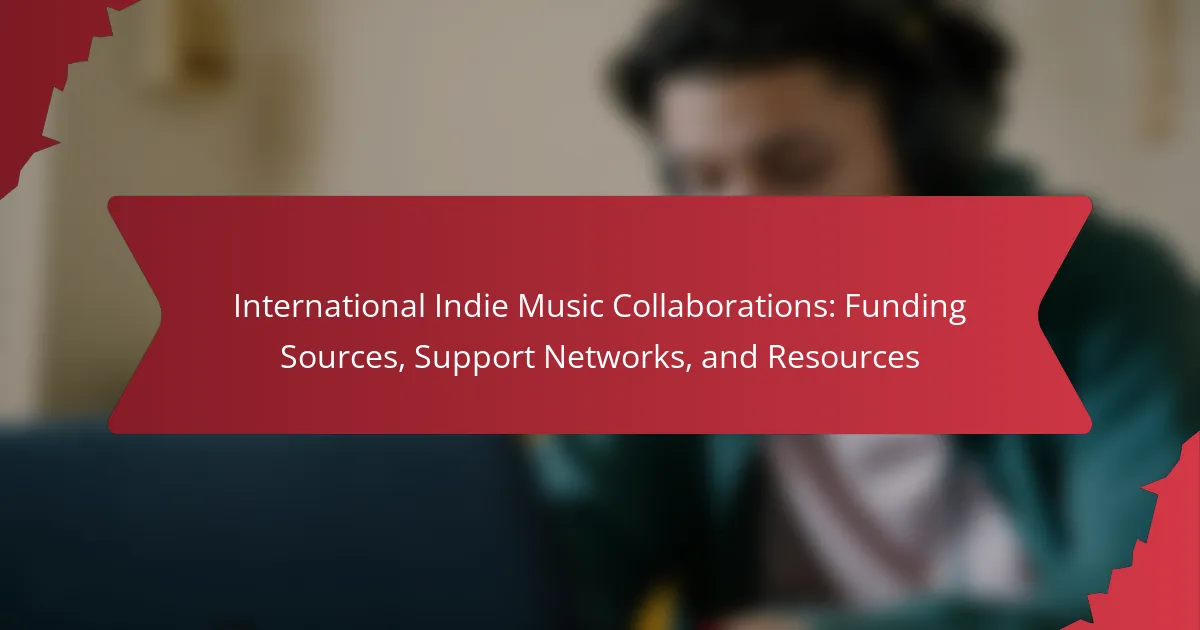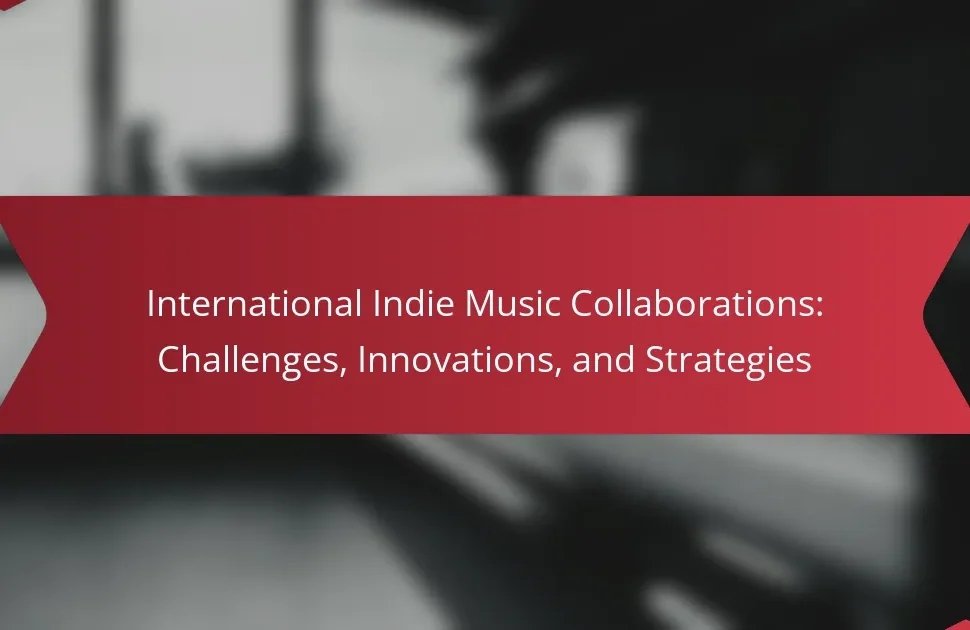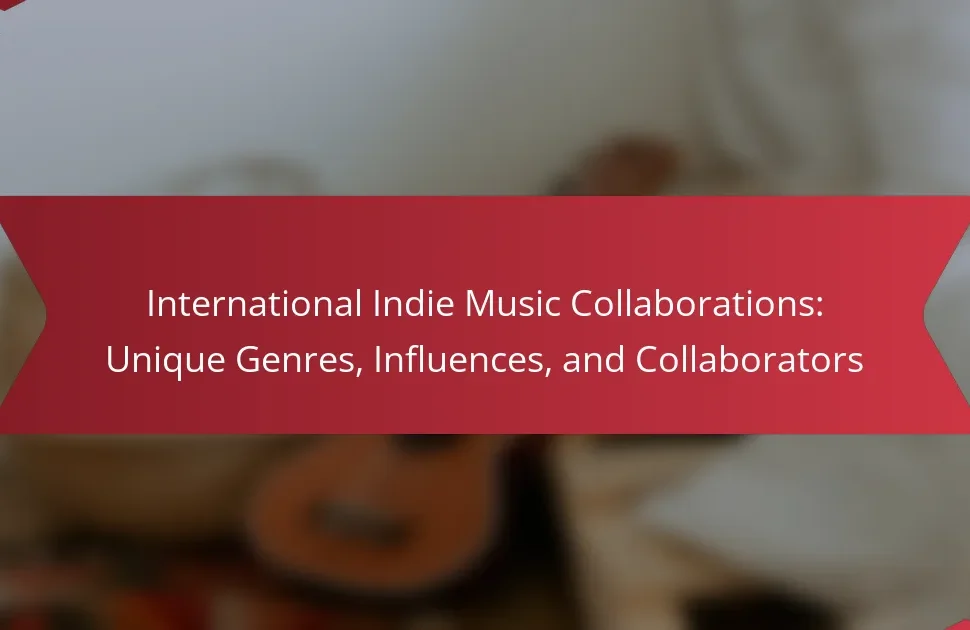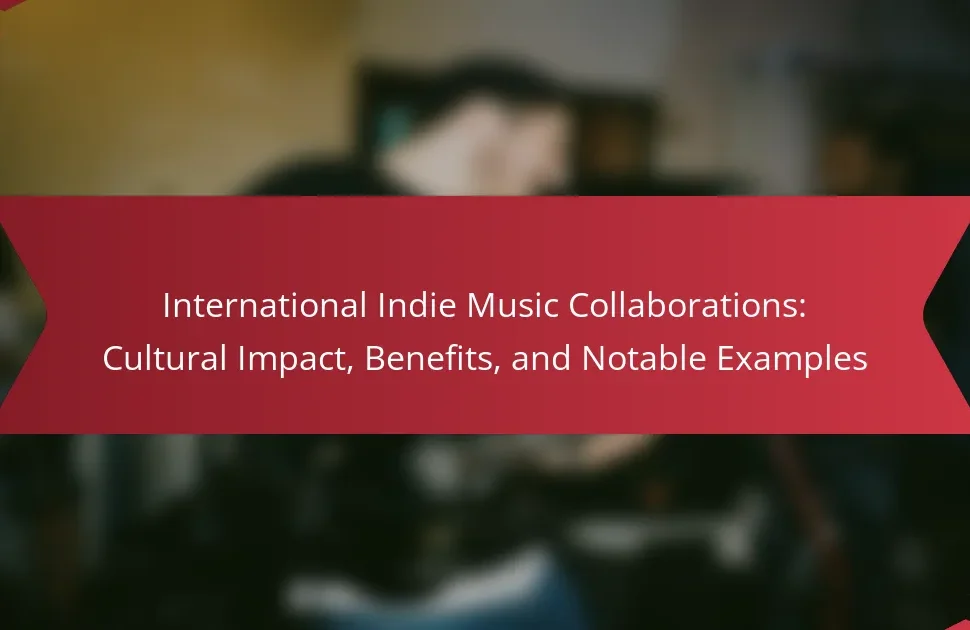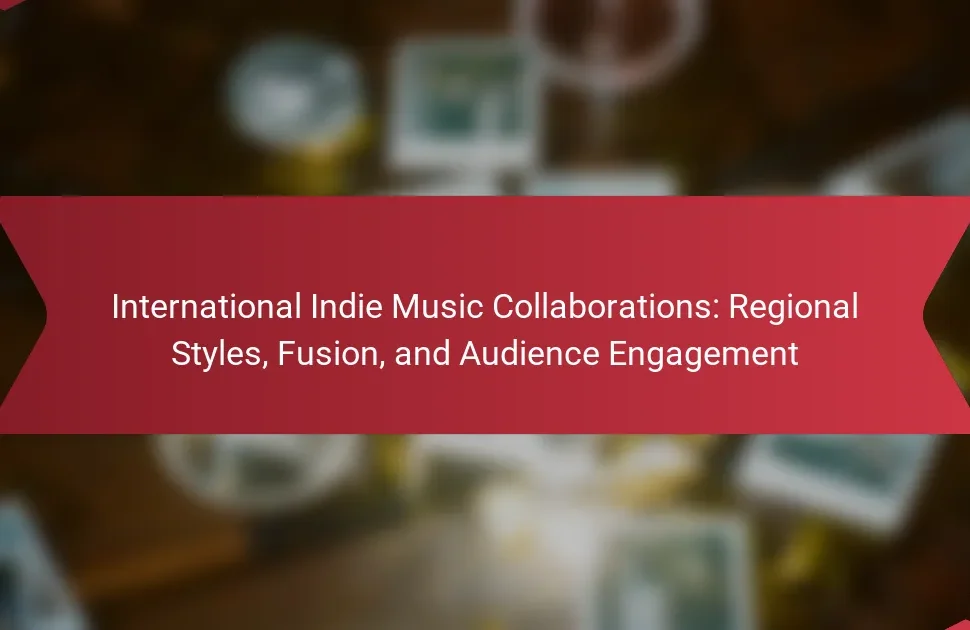International indie music collaborations face challenges in funding and resources. Key funding sources include grants, crowdfunding, and sponsorships. Support networks like the International Federation of the Phonographic Industry enhance collaboration opportunities. Cultural diversity enriches these projects, attracting interest from various funding avenues.
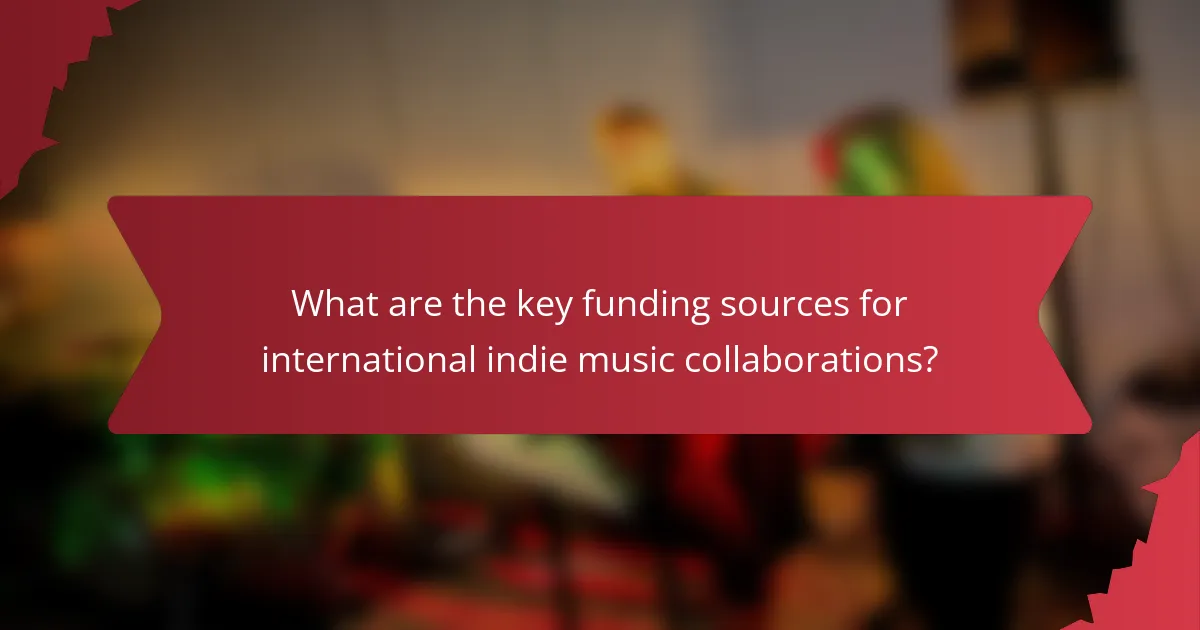
What are the key funding sources for international indie music collaborations?
Key funding sources for international indie music collaborations include grants, crowdfunding, sponsorships, and music festivals. Grants from cultural institutions often support cross-border projects. Crowdfunding platforms enable artists to raise money directly from fans. Sponsorships from brands can provide financial backing in exchange for promotional opportunities. Music festivals frequently offer funding or resources for collaborative performances.
How do grants and sponsorships support indie music projects?
Grants and sponsorships provide essential financial support for indie music projects, enabling artists to produce and promote their work. These funding sources often cover recording costs, marketing, and touring expenses, allowing for greater creative freedom. Additionally, sponsorships can offer networking opportunities, connecting artists with industry professionals and potential collaborators. Many organizations prioritize funding for diverse and innovative music projects, enhancing the cultural landscape and supporting the growth of indie music.
Which crowdfunding platforms are most effective for indie musicians?
Kickstarter, Indiegogo, and Patreon are the most effective crowdfunding platforms for indie musicians. These platforms offer unique features tailored for creative projects, allowing artists to connect with fans and secure funding.
Kickstarter focuses on project-based funding, requiring a clear goal and timeline. Indiegogo provides flexible funding options, enabling musicians to keep funds even if they don’t meet their target. Patreon offers subscription-based support, allowing fans to contribute regularly in exchange for exclusive content.
Each platform serves different needs, making them valuable resources for indie musicians seeking financial backing and community support.
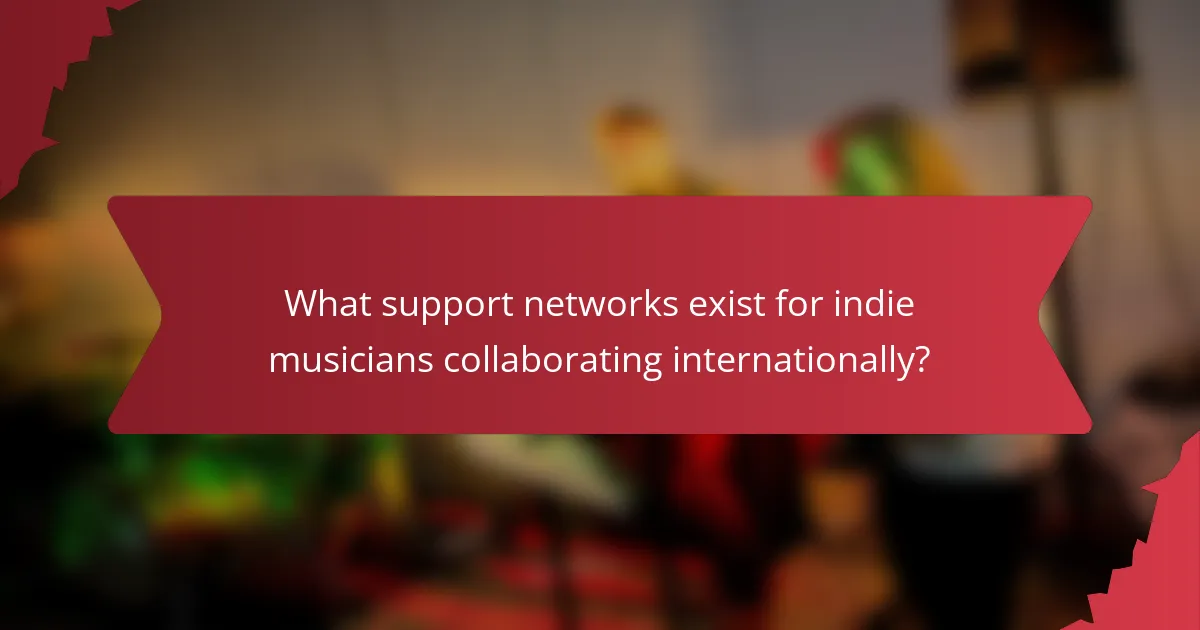
What support networks exist for indie musicians collaborating internationally?
International indie musicians can access various support networks for collaboration. Key organizations include the International Federation of the Phonographic Industry, which provides resources and funding opportunities. Additionally, platforms like Bandcamp and SoundCloud facilitate global connections. Local music associations often offer grants and mentorship programs. Networking events and online forums further enhance collaboration prospects. These resources foster cross-border partnerships and creative exchanges in the indie music scene.
How do music festivals facilitate collaboration among indie artists?
Music festivals enhance collaboration among indie artists by providing networking opportunities, shared resources, and access to funding. These events create a vibrant atmosphere where artists can connect, share ideas, and collaborate on projects. Festivals often feature workshops and panels that educate artists on funding sources and support networks, fostering a collaborative spirit. Additionally, many festivals offer grants or sponsorships, enabling artists to fund joint ventures and creative endeavors.
Which online communities provide resources for indie music collaborations?
Online communities that support indie music collaborations include platforms like Bandcamp, SoundCloud, and Reddit. These platforms facilitate connections among artists, provide funding opportunities, and offer resources for collaboration. Additionally, Facebook groups and Discord servers often host indie music communities that share tips, feedback, and project opportunities.
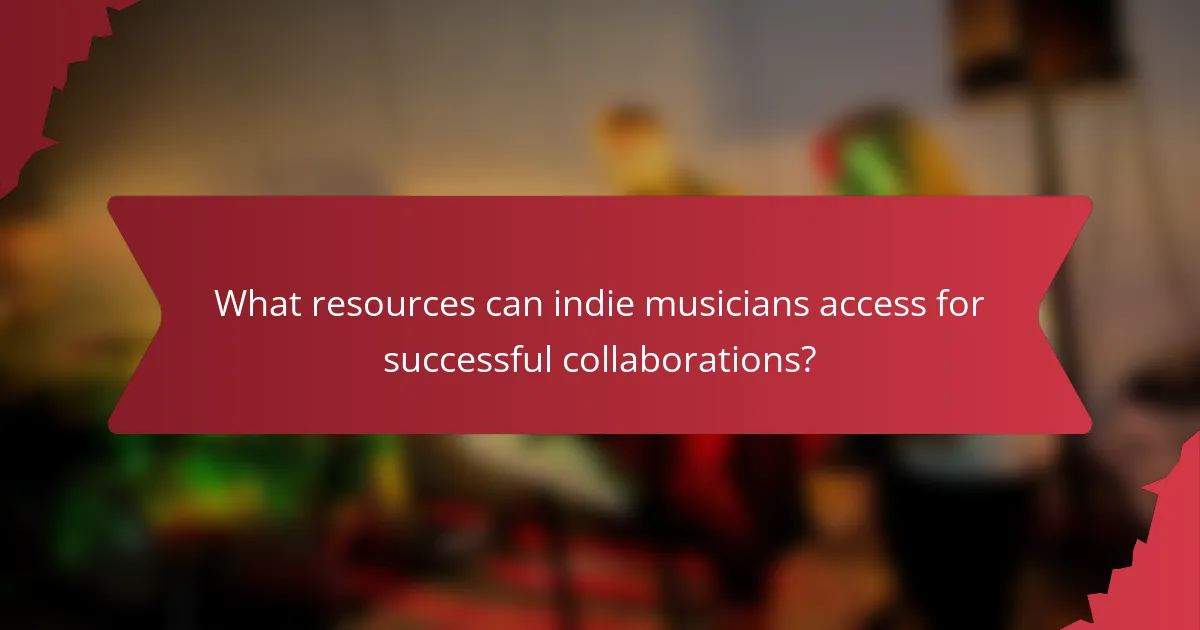
What resources can indie musicians access for successful collaborations?
Indie musicians can access various resources for successful collaborations, including funding sources, support networks, and online platforms. Funding sources like grants and crowdfunding platforms provide financial assistance. Support networks, such as music industry associations, offer mentorship and guidance. Online platforms facilitate collaboration by connecting artists globally. These resources enhance opportunities for creative partnerships and project development.
How do music licensing and rights management impact collaborations?
Music licensing and rights management significantly influence international indie music collaborations by protecting creators’ interests. Proper licensing ensures that all parties receive fair compensation and recognition for their contributions. This fosters trust and encourages collaboration among artists, producers, and labels.
Additionally, understanding rights management helps navigate complex legal landscapes, enabling smoother project execution. For instance, clear agreements on ownership and distribution rights can prevent disputes and enhance creative synergy.
Moreover, access to resources like licensing platforms and legal support networks can empower indie artists to collaborate effectively. These resources provide guidance on navigating industry standards and securing necessary permissions, ultimately benefiting the collaborative process.
In summary, effective music licensing and rights management create a stable foundation for successful international indie music collaborations, promoting creativity and fair compensation.
What role do production studios play in international indie music projects?
Production studios are vital in international indie music projects as they provide essential resources, expertise, and funding opportunities. They facilitate collaboration among artists from different countries, ensuring access to high-quality production standards. Additionally, production studios often connect artists with distribution networks and marketing support, enhancing their global reach. They may also offer unique attributes, such as specialized knowledge in regional music styles, which can enrich the creative process. Overall, their role is crucial in transforming artistic visions into polished, market-ready music.
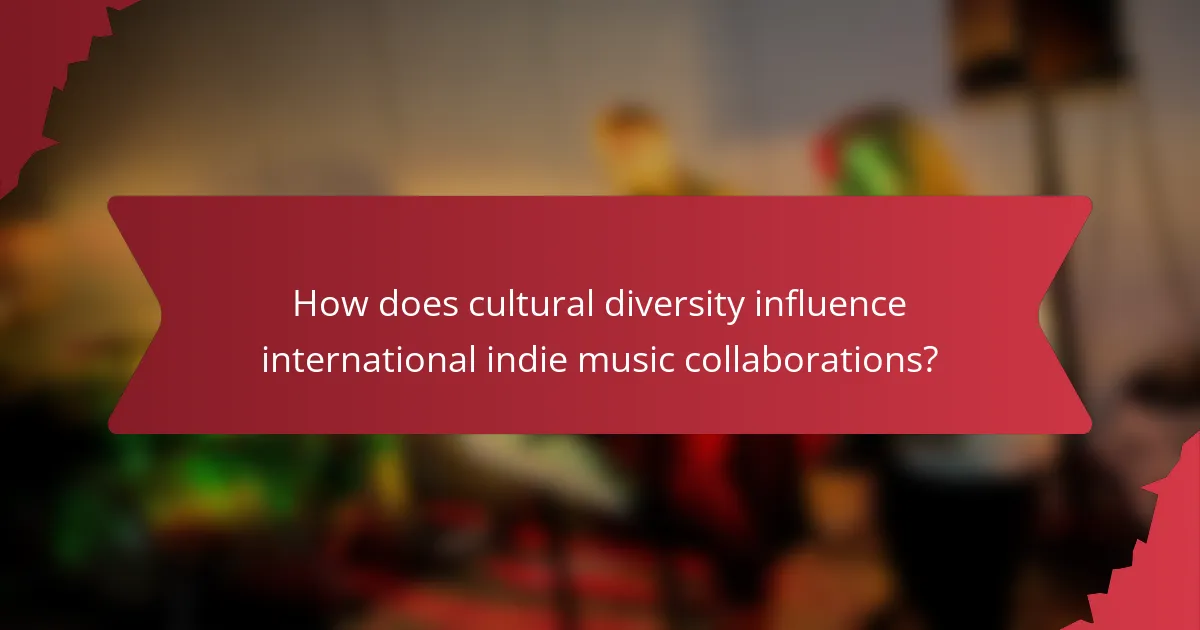
How does cultural diversity influence international indie music collaborations?
Cultural diversity enhances international indie music collaborations by fostering creativity and innovation. Diverse backgrounds contribute unique perspectives, enriching musical styles and themes. Collaborations often blend genres, creating fresh sounds that appeal to wider audiences. This cultural exchange can lead to increased funding opportunities, as diverse projects attract interest from various support networks and resources.
What unique sounds emerge from cross-cultural indie collaborations?
Unique sounds from cross-cultural indie collaborations often blend diverse musical traditions, creating innovative genres. These collaborations showcase distinct instruments, vocal styles, and rhythms that reflect cultural heritage. For example, a fusion of African drumming with Western indie melodies can produce a unique soundscape. Additionally, the integration of various languages in lyrics enhances the auditory experience, making it globally appealing. This diversity not only enriches the music but also fosters cultural exchange among artists and audiences.
How do language barriers affect international music partnerships?
Language barriers significantly hinder international music partnerships by complicating communication and collaboration. Artists may struggle to convey their creative ideas, leading to misunderstandings. Additionally, language differences can limit access to funding sources and support networks, as many resources are often available only in specific languages. As a result, artists may miss opportunities for collaboration and funding, impacting the overall success of their projects. Overcoming these barriers often requires the use of translators or bilingual collaborators, which can add complexity and cost to the partnership process.
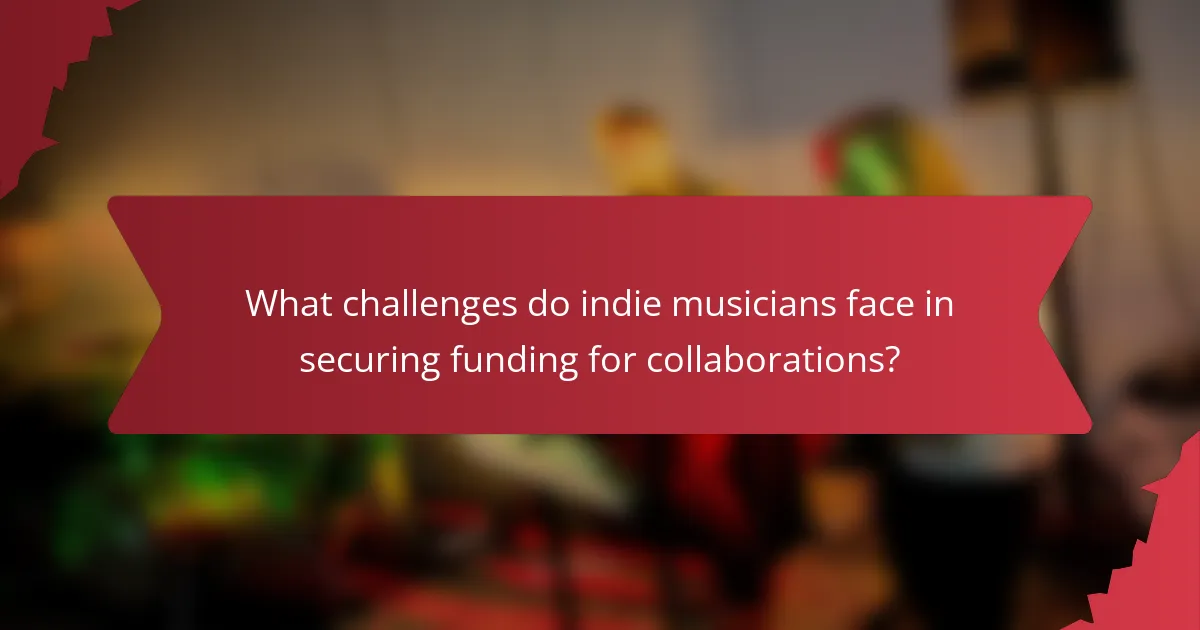
What challenges do indie musicians face in securing funding for collaborations?
Indie musicians face significant challenges in securing funding for collaborations, primarily due to limited access to traditional funding sources. Many rely on personal savings or crowdfunding, which may not cover all expenses. Additionally, competition for grants and sponsorships is fierce, often requiring extensive proposals and connections. The lack of established networks can hinder opportunities for collaboration, making it difficult for indie artists to find partners willing to invest in joint projects.
How can artists overcome financial limitations when collaborating?
Artists can overcome financial limitations by exploring diverse funding sources and support networks. Crowdfunding platforms like Kickstarter and Patreon offer direct financial support from fans. Grants from arts organizations and government bodies provide non-repayable funds. Collaborating with established artists can also attract sponsorships and shared resources. Joining local music collectives fosters networking opportunities and resource sharing. Additionally, leveraging social media for promotional partnerships can enhance visibility and funding potential.
What are common pitfalls in managing international music projects?
Common pitfalls in managing international music projects include inadequate funding, lack of cultural understanding, and insufficient communication. These challenges can hinder collaboration and project success.
Funding sources may vary significantly across regions, leading to mismatched expectations. Cultural differences can affect artistic vision and collaboration dynamics. Communication barriers often arise from language differences and time zone challenges, complicating project management.
These pitfalls can be mitigated by establishing clear funding strategies, fostering cultural exchange, and implementing effective communication tools. Understanding these aspects is essential for successful international indie music collaborations.
What best practices should indie musicians follow for successful collaborations?
Indie musicians should prioritize clear communication, mutual respect, and shared goals for successful collaborations. Establish a defined project scope, including roles and responsibilities, to avoid misunderstandings. Utilize funding sources like grants, crowdfunding platforms, and music industry organizations to support collaborative efforts. Engage with support networks such as local music collectives and online communities to connect with potential collaborators. Leverage resources like collaboration tools and platforms that facilitate remote work, ensuring smooth coordination across different locations.
